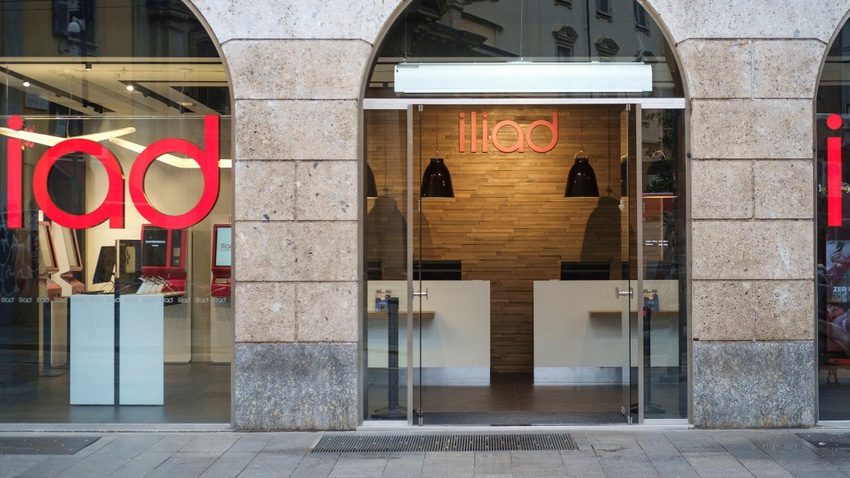Iliad founder threatens telecom shake-up in Ukraine
Combining Datagroup-Volia and Lifecell would create a stronger fixed-mobile player in Ukraine, while adding another market to Xavier Niel's Iliad portfolio in Europe.

After disrupting markets in France and Italy and making an entrance into Poland, Xavier Niel, founder of operator group Iliad, now has his sights set on Ukraine. Earlier this week, his investment firm NJJ confirmed that it has received approval from Ukrainian authorities to buy fixed provider Datagroup-Volia from US private equity firm Horizon Capital, and that it plans to merge it with Ukraine's third-largest operator, Lifecell.
While that move will need a blessing from Ukrainian regulators, it could pave the way to creating a stronger operator, better able to compete against Ukraine's other telcos.
In January, NJJ agreed to buy Lifecell from Turkcell, along with its other telecom assets in Ukraine, for $525 million. This gives it ownership of an operator that has managed to perform well despite the war. It had 9.9 million active mobile customers at the end of the 2023 fiscal year, up 16.5% year-over-year. Its revenues for the same period reached 11.7 billion Ukrainian hryvnia (US$300 million) that year, up 24.4%.
In comments emailed to Light Reading, Alex Bilyi, an analyst at Analysys Mason, noted that "Xavier Niel's NJJ Capital is making a strategic play with its acquisition of Datagroup-Volia and Lifecell to capitalize on the promising growth potential of the recovering Ukrainian market. The move builds on Datagroup's vision, initiated in 2018, for a comprehensive triple-play offering (fixed line, mobile, and pay TV)."
"A meeting with Niel's team in Paris in December 2021 cemented Datagroup's vision, with the 2021 Datagroup/Volia merger aligning with this strategy. While the war undoubtedly delayed further consolidation with Lifecell, current conditions in Ukraine offer a relative stability compared to 2022, making this acquisition more viable," he added.
Business goes on
Indeed, Ukrainian telcos are continuing to operate and generate revenues despite the added challenges presented by the ongoing war with Russia following the full-scale invasion in 2022.
In the nine months to November 2023, Vodafone Ukraine, today owned by Azerbaijan's NEQSOL Holding, saw income grow 8% year-over-year to reach UAH15.9 billion ($408.1 million) in its own currency – although in dollar terms it fell by 9%. Still, the company reported $104 million in profits. For the same period, the country's largest operator Kyivstar saw reported revenues fall by 6% to $702 million, while registering a 12% growth in local currency terms.
Kyivstar's performance in the following quarter, however, demonstrates the problems associated with operating in a war-stricken country. After an unprecedented cyberattack, the company experienced a widespread outage that lasted several days. The financial impact has been calculated at roughly $95 million – due largely to customer retention measures – and has contributed to Kyivstar's revenues falling by more than 3% year-over-year for the recent fourth quarter, according to its parent VEON.
Diana Gorelik, senior analyst at Omdia (Light Reading's sister company) has said to Light Reading in emailed comments: "While the total value of the deal is not announced yet, it is understood that the value of the transaction will be determined considering the current market conditions in the country which is still going through an active phase of the war."
"While this forward-looking investment can be considered quite risky, it represents a great strategic opportunity to invest in a country with attractive post-war commercial potential," she added.
Free radical
Niel has a knack of entering European markets and using low rates to gain market share. On his home turf in France, his then fixed provider Free entered the mobile market and introduced flexible monthly mobile tariffs at €2 and €19.99 ($2.2 and $21.5 at today's exchange rate) – well below what the three established operators had been offering to customers with fixed-period contracts. And while the contents of these deals have evolved, those two tariffs have remained in place and will do so until at least 2027.
A few years later, Iliad also started a period of price disruption in Italy and picked up 9 million customers within four years in a country of 60 million people. In Poland, meanwhile, it tapped into an existing operator through its acquisition of Play in 2020. A year later, Iliad added UPC Poland to its portfolio to create a large fixed-mobile player.
This has some relevance to the Ukrainian deal, as Gorelik noted: "This is a powerful addition to Xavier Niel’s portfolio as Iliad owns Play in Poland and generally Polish and Ukrainian telcos have close ties as Poland hosts a large number of the Ukrainian refugees thanks to a strong social and economic bond between two countries."
Bilyi, meanwhile, pointed out that "Lifecell aligns perfectly with Iliad's aggressive pricing strategy employed in other markets. As an only mobile operator with a growing active subscriber base, nearing pre-war levels and leadership in mobile number portability, Lifecell is a natural addition to the portfolio."
"Combined with Volia's existing fixed-line and pay TV, this deal creates a complete offering ready to compete directly with the two other major players in the Ukrainian market," he added.
Read more about:
EuropeAbout the Author(s)
You May Also Like





.jpg?width=300&auto=webp&quality=80&disable=upscale)






